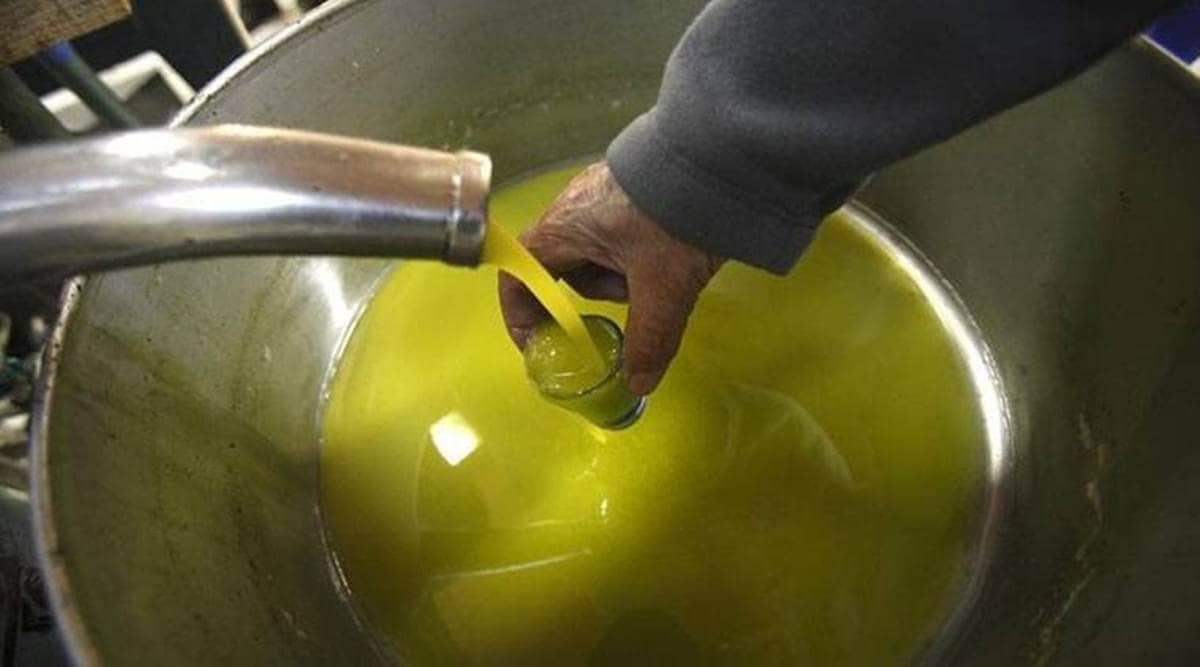 Prices of all edible oil had touched Rs 200/litre in most of the retail market across the country. (Representational/File)
Prices of all edible oil had touched Rs 200/litre in most of the retail market across the country. (Representational/File) The central government has removed stocking limits, set earlier this year, on edible oil and oilseed after a good sowing of mustard, and softening of global edible oil prices. With this, most of the farmers are hoping for a slight upward correction in the oilseed prices, even as future trading continues to be banned.
On February 3 this year, the central government had issued the stock limit order to control what it called an “inflation” in the prices of edible oil; and extended it till December 31, 2022. Six states, meanwhile, issued their own orders in terms of stock limits. The latest order — which was issued on Thursday — states that restrictions on stock limits on both edible oil and oilseed would lapse following December 31 this year. “The stock limit would be 30 quintal for edible oil for the retailers, 500 quintal for wholesalers, 30 quintal for retail outlets of bulk consumers — big chain retailers and shops, and 1,000 quintal for depots.
Processors of edible oil would be able to stock 90 days of their storage or production capacities. The stock limit for edible oilseed would be 100 quintal for retailers, and 2,000 quintal for wholesalers. Processors of edible oilseed would be able to stock a 90-day production of edible oil, as per the daily input production capacity. Exporters and importers have been kept outside the purview of the order with some caveats,” reads the original order.
Prices of all edible oil had touched Rs 200/litre in most of the retail market across the country. The “inflation” was what the industry called “imported inflation”, given the higher price of palm and other edible prices in the world. While prices of sunflower oil have spiralled due to the Russia-Ukraine crisis, palm oil — which forms the maximum of India’s import — saw a price rise due to the Indonesian government’s decision to clamp down on exports. To be noted, Indonesia and Malaysia are the world-wide importers of palm oil. Over the last six months, barring ground nuts, retail prices of almost all other edible oil have corrected significantly across India. Palm oil prices have corrected the most — on an average from Rs 160 in June to Rs 110 at present, while other edible oils have seen price corrections within Rs 20/litre.
The edible oil industry ascertained that the price correction was mainly due to the cooling of the global edible prices and better supply situation of domestic oilseed, especially mustard and rape seed.
This year, mustard and rapeseed cultivation has also touched a new high, with farmers taking the crop over 92.67 lakh hectare during the Rabi season. This has mainly been because of better oilseed prices, which has seen farmers from Rajasthan, and Madhya Pradesh dumping chana over mustard.
In the international market, edible oil prices have seen a continuous correction over the last seven months. The edible oil price index of the Food and Agriculture Organization, meanwhile, has seen a continuous reduction for the last seven month. A better availability in the global market has been the main reason for the same.